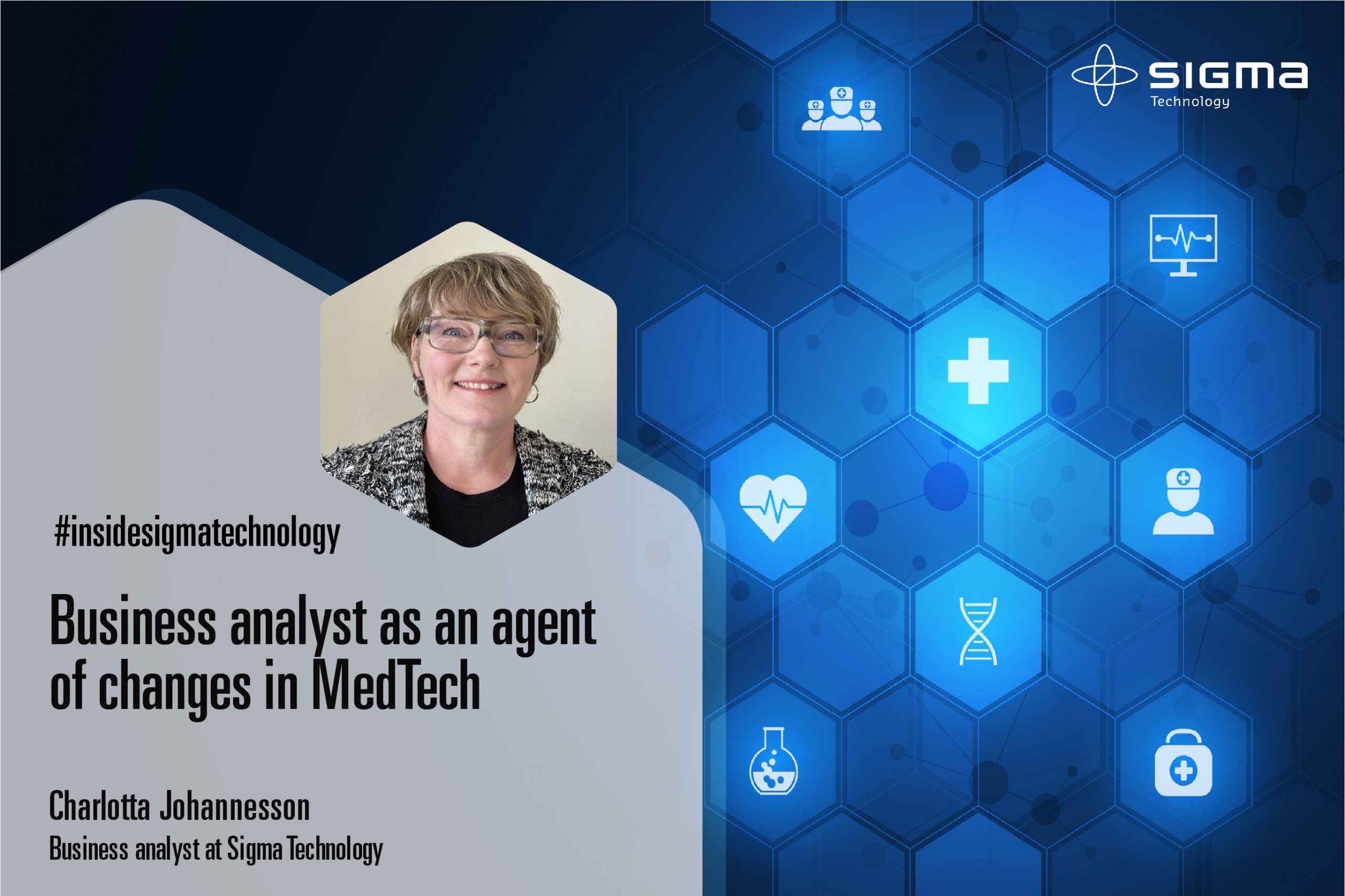
Analytics always followed the business since the management fundamentals were defined in the late 19th century. Even Henry Ford implemented a practice to measure the time of each process on his newly established assembly line in the early 1900s. Though extended usage appeared only when computers gained their popularity, and since then, analytics have changed and influenced the further development of ERPs, data warehouses, software tools, and processes.
So what is business analytics, and how it helps to transform organizations and industries? We have talked with Charlotta Johannesson, a professional business & system analyst at Sigma Technology, to find out how a business analyst can help companies of the MedTech sector boost the industry and redefine its performance.
Charlotta, you have been working as an IT consultant since 1995, holding positions as a business analyst, product owner, system analyst, team leader, and system developer/programmer. Now you work as a business analytics expert for the MedTech company. What impressions can you share about this experience and industry?
The MedTech industry is a fascinating area to work in, especially now in the current situation when we have a pandemic. There is a huge demand to deliver medications and vaccines safely and securely with short lead times. Also, helping people feel better, getting patients to get better treatment outcomes, and getting a better life quality is very rewarding.
Tell us about your project, what are your primary responsibilities, and what tasks do you perform?
I work as a business analyst within a project where we are building a platform for clinical trials to support both investigators and patients. My main tasks are collecting requirements from business needs, transforming, describing, and communicating these requirements to something that the development team can understand and deliver. Metaphorically, I work as a translator from developers’ language to the language of business and vice versa.
I also facilitate workshops, conduct pre-studies, gap analysis, configuration, and information mapping.
Are there any particular skills required to succeed as a Business analyst in the MedTech and healthcare sectors?
Being accurate, focusing on details, and having understanding and empathy towards end-users (patients in clinical trials). They might be in a stressful situation as they are fighting an illness, and that the digital solution delivered needs to handle and support this.
In general, a business analyst has to possess several properties, such as:
– Analytical mindset: ask proper questions, analyze data, compare and find the correlation.
– Data visualization to convey information to all participants in the process.
– Learnability and understanding of the business domain.
And last but not least. The most important thing for success is finding ways for good collaboration and dialogues, which boosts teamwork – real magic!
How do Business Analysts help MedTech companies to evolve?
As the demand is high and the sphere is controlled from a security and legislations point of view, I see a huge demand for analysts developing and describing ways of working. Processes must be described clearly and be very flexible to support the different needs of the clinical trials.
What are the biggest challenges of this specific industry?
In the area of clinical trials, the main challenge is to reduce the cost of clinical trials and to increase the development speed of new, effective and safe medicines to save patients and help them get a better life. Certainly, there is a need to scale digital capabilities to shorten trials with remote data collection to reach more patients and speed up recruitment. It is also essential to increase participation by follow up on patient compliance to a study to, as early as possible, locate and prevent potential patient dropouts of the trials.
What would you recommend, as a business analytics expert, for the organizations of the MedTech industry?
From the development point of view, especially for large platforms, I think the team’s agile mindset is essential. It’s necessary to be able to divide the work into smaller pieces with controlled deliveries. It is also crucial to be able to run verification and ethics controls in a proper and controlled way. The tech solution has to generate high-quality data for faster decision making – through increased frequency of sampling, create higher quality scientific value, and enable novel endpoints. It will provide the foundation for advanced analytics and planning for predictive decision-making. Easy to use and understand technical solutions will save a lot of time in the development phases and also make sure we are delivering a sustainable and credible IT solution.
Think that you check all the boxes to become a business analytics expert or already have experience in this domain? Find out what positions in business analysis are waiting for you at Sigma Technology.